
Find A Professional
More Items From Ergsy search
-
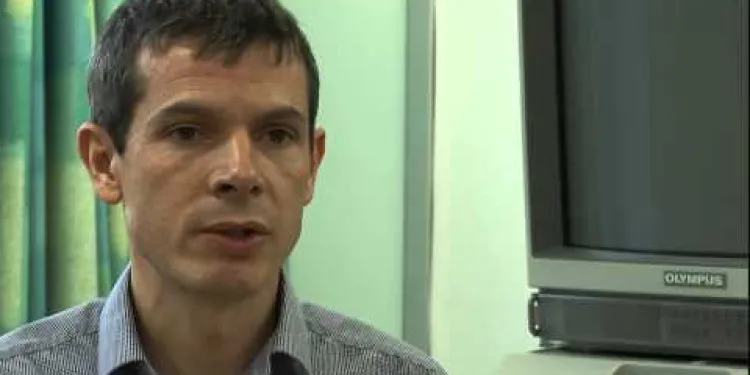
Bowel cancer - Symptoms and signs to look out for
Relevance: 100%
-

Learn about bowel cancer (British Sign Language version)
Relevance: 79%
-

What are the risk factors for bowel cancer?
Relevance: 77%
-
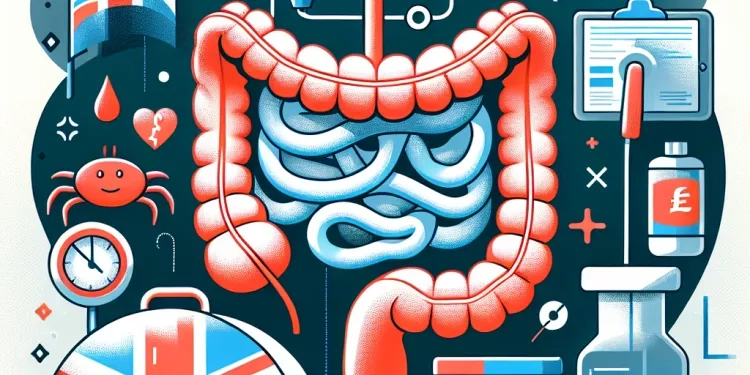
What is Bowel Cancer?
Relevance: 73%
-

Can bowel cancer spread to other parts of the body?
Relevance: 73%
-
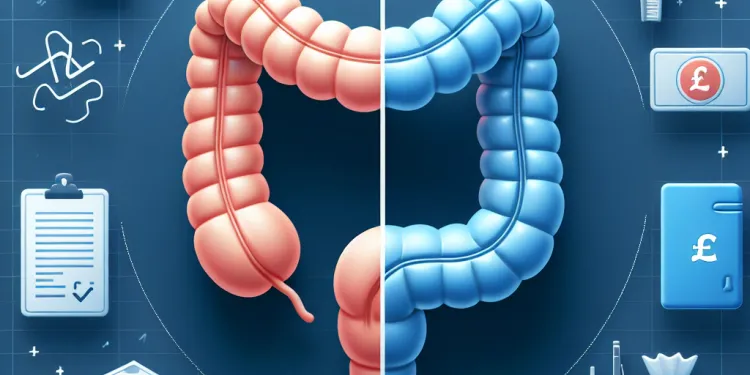
What is the difference between colon cancer and rectal cancer?
Relevance: 72%
-

What role does diet play in the risk of developing bowel cancer?
Relevance: 72%
-

What lifestyle changes can help lower the risk of bowel cancer?
Relevance: 72%
-

How is bowel cancer diagnosed?
Relevance: 71%
-

What is the survival rate for bowel cancer?
Relevance: 71%
-

Taking a Genetic Family History - The Conversation (Bowel Cancer)
Relevance: 70%
-

What treatment options are available for bowel cancer?
Relevance: 70%
-
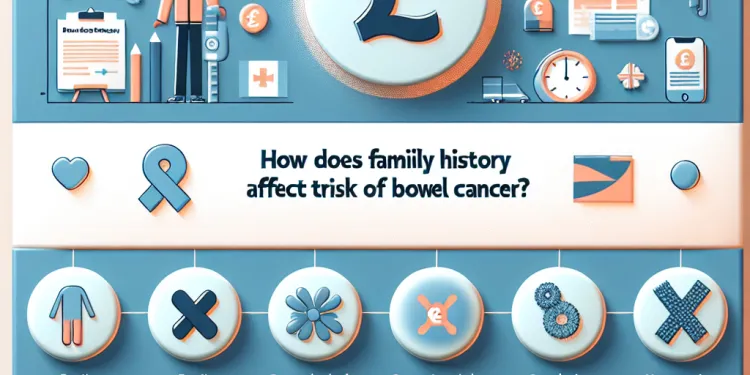
How does family history affect the risk of bowel cancer?
Relevance: 70%
-
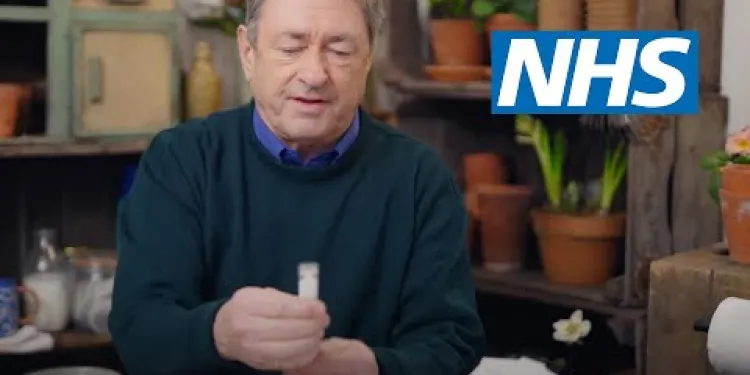
Bowel cancer screening: Alan Titchmarsh and Tommy Walsh | NHS
Relevance: 69%
-

Can bowel cancer be prevented?
Relevance: 66%
-

How is the stage of bowel cancer determined?
Relevance: 66%
-

What support is available for individuals diagnosed with bowel cancer?
Relevance: 65%
-
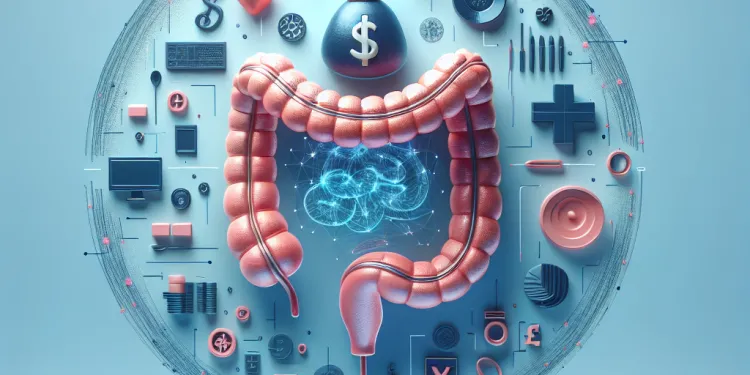
How common is bowel cancer?
Relevance: 64%
-
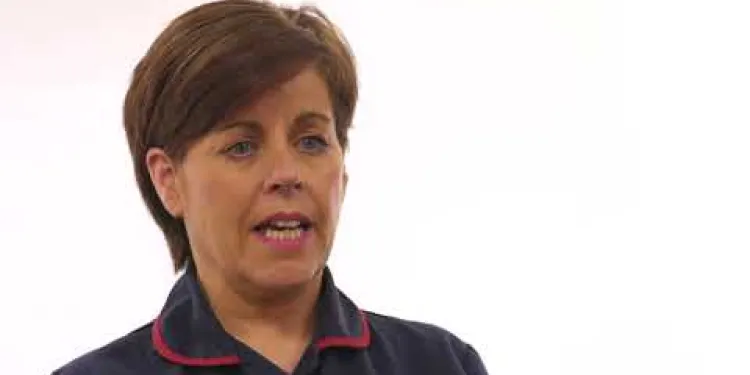
Ovarian Cancer
Relevance: 62%
-
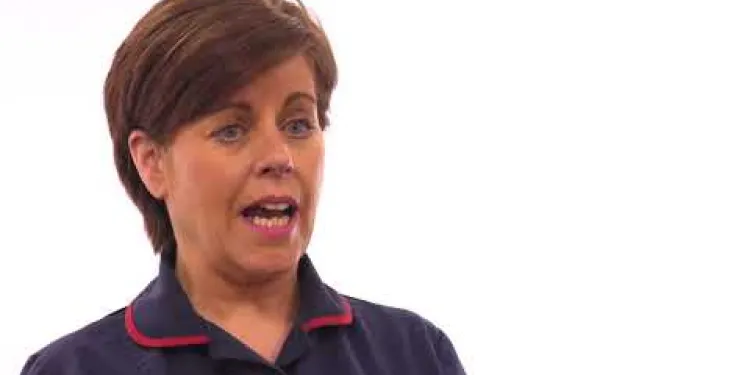
Endometrial Cancer
Relevance: 62%
-

Prostate cancer diagnosis and tests
Relevance: 58%
-
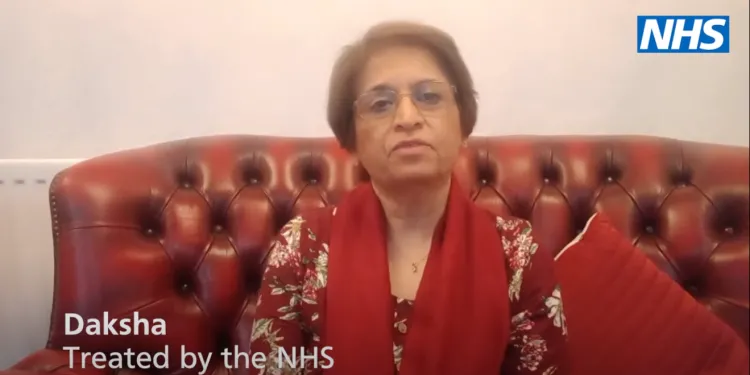
What is Cancer?
Relevance: 56%
-
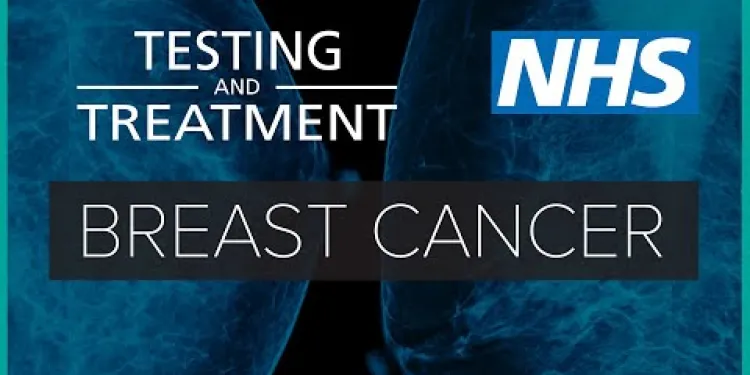
Breast cancer: testing and treatment | NHS
Relevance: 55%
-
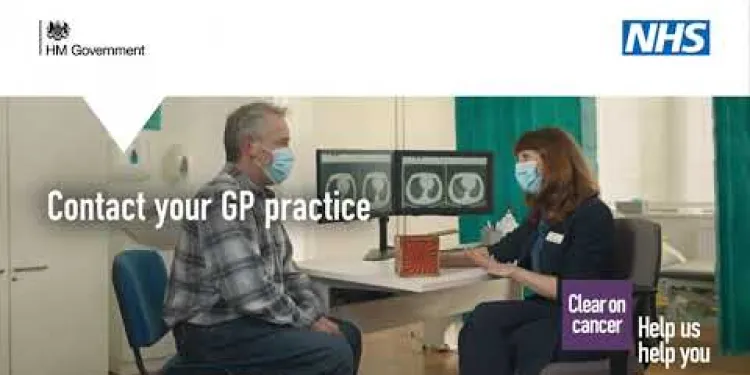
Don't carry the worry of cancer with you | NHS
Relevance: 54%
-
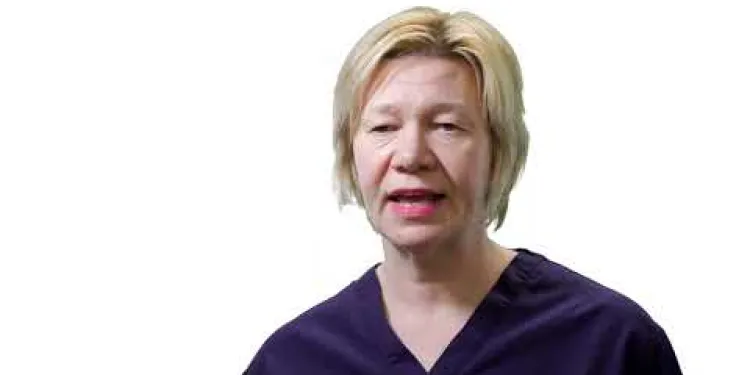
Head and Neck Cancer Diagnosis
Relevance: 54%
-
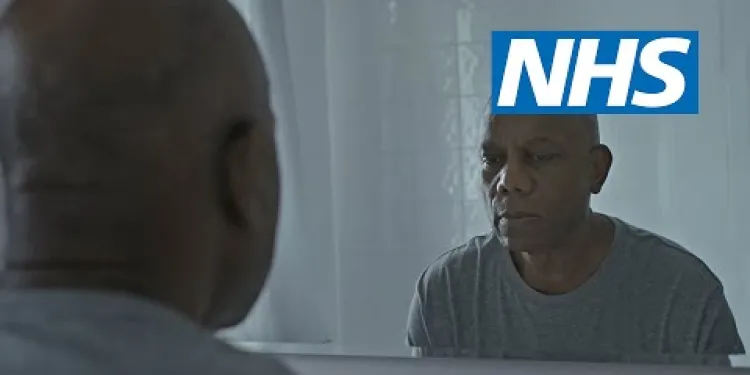
Worried about signs that could be cancer? Contact your GP practice | NHS
Relevance: 54%
-

Why do men get prostate cancer?
Relevance: 54%
-
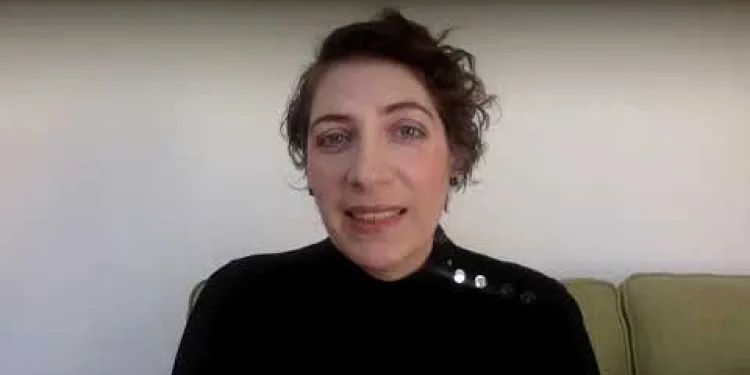
World Pancreatic Cancer Day - No Time to Wait
Relevance: 53%
-

Treating prostate cancer
Relevance: 53%
-
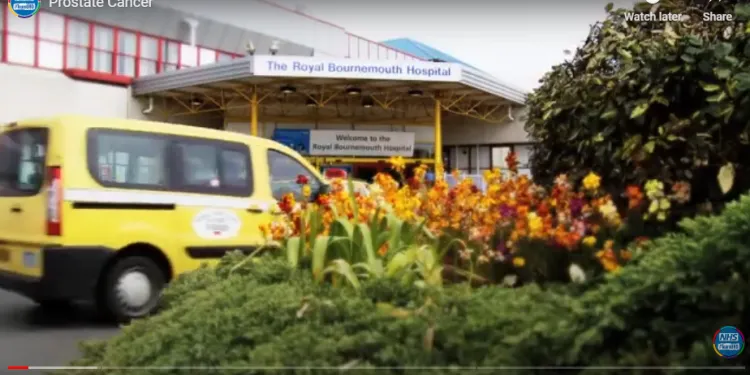
What is Prostate Cancer?
Relevance: 52%
-
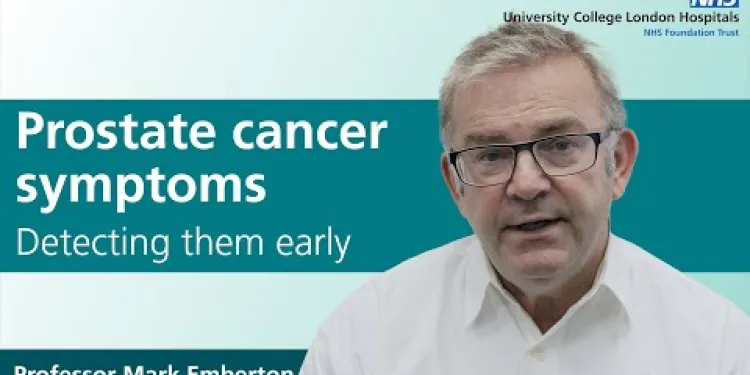
Prostate cancer symptoms - detecting them early
Relevance: 51%
-
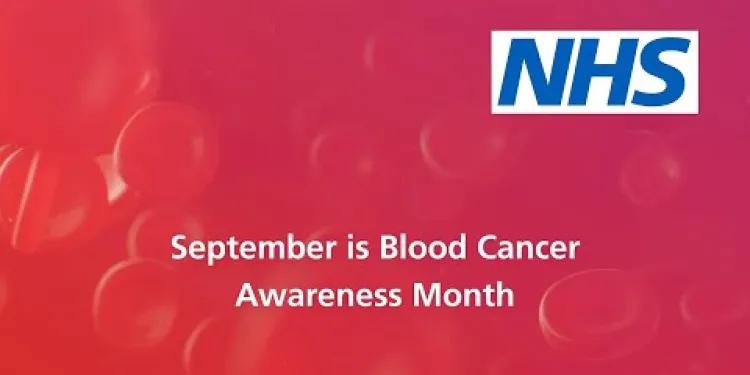
4 facts about blood cancer that you should know | NHS
Relevance: 49%
-

Skin cancer education
Relevance: 49%
-
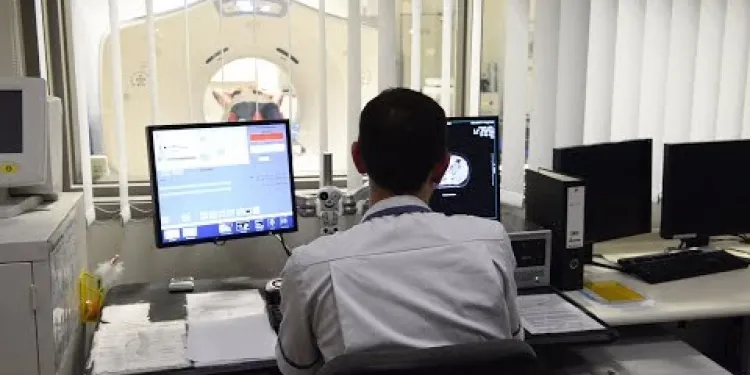
Having radiotherapy for breast cancer - 3 Videos
Relevance: 48%
-

Genomics I: An overview of genomics in cancer care
Relevance: 47%
-
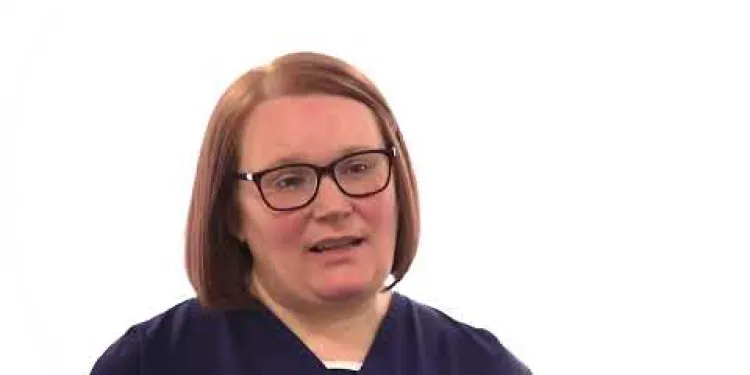
Vaginal Cancer
Relevance: 47%
-
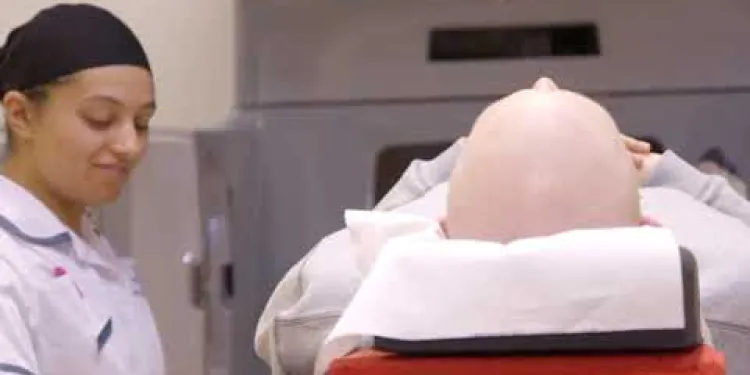
What is Radiotherapy, and its use in treatment for cancers?
Relevance: 44%
-
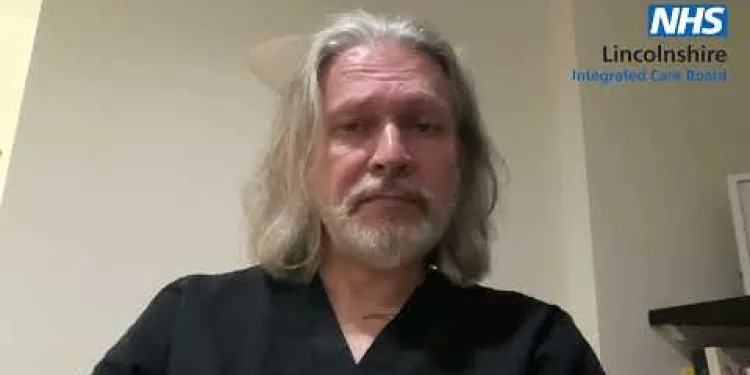
Getting to know your Testicles: Testicular Cancer Awareness with Dr James Howarth, Spilsby Surgery
Relevance: 44%
-
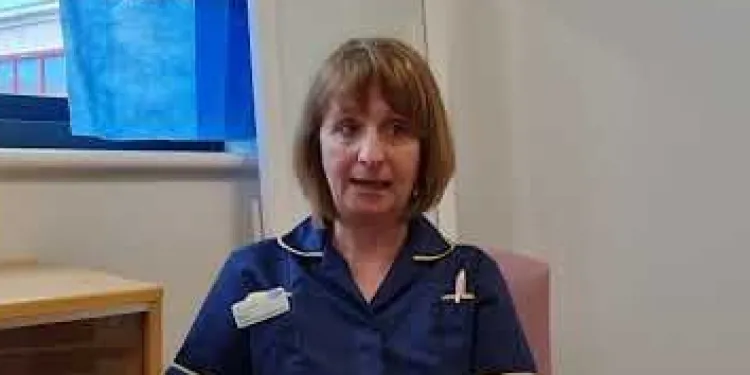
Ovarian cancer - signs and symptoms to look out for
Relevance: 43%
-

Living with prostate cancer
Relevance: 42%
Introduction
Bowel cancer, also known as colorectal cancer, is a common form of cancer in the UK affecting the colon and rectum. Early diagnosis is crucial for effective treatment and a better chance of recovery. Understanding how bowel cancer is diagnosed can help individuals seek timely medical advice and potentially improve outcomes.
Symptoms Prompting Diagnosis
Bowel cancer diagnosis often begins with recognising symptoms such as persistent changes in bowel habits, blood in stools, abdominal pain, and unexplained weight loss. While these symptoms can be indicative of other conditions, it is important not to ignore them and seek medical advice.
Initial Consultation with a GP
If bowel cancer is suspected, the first step is to consult a General Practitioner (GP). During the consultation, the GP will enquire about symptoms, medical history, and family history of cancer. They may perform a physical examination and assess if further tests are needed. In some cases, lifestyle and dietary advice may be offered if symptoms suggest a non-cancerous condition.
Screening Tests
The NHS Bowel Cancer Screening Programme offers routine tests for early detection of bowel cancer in people aged 60 to 74. The main test used is the Faecal Immunochemical Test (FIT), which checks for traces of blood in a stool sample, a potential indicator of bowel cancer or polyps. If the FIT result is positive, further diagnostic tests may be required.
Diagnostic Tests
When bowel cancer is suspected, several diagnostic tests may be undertaken:
Colonoscopy
A colonoscopy is a procedure where a thin, flexible tube with a camera (colonoscope) is inserted into the rectum to examine the entire colon. It allows for the detection and biopsy of abnormal areas, such as polyps or cancerous growths.
Flexible Sigmoidoscopy
This procedure is similar to a colonoscopy but only examines the lower part of the colon and rectum. It is less comprehensive but may still detect suspicious areas that warrant further investigation.
CT Colonography
Also known as a virtual colonoscopy, this imaging test uses a CT scan to produce detailed pictures of the colon and rectum, helping to identify growths or abnormalities without needing a full colonoscopy initially.
Pathology Analysis
If polyps or abnormal tissue are found during a colonoscopy or sigmoidoscopy, a biopsy may be taken for pathology analysis. This involves examining tissue samples under a microscope to look for cancerous cells and confirm a diagnosis.
Conclusion
Diagnosing bowel cancer involves a combination of symptom assessment, screening tests, and various diagnostic procedures. Early detection through these methods can significantly improve treatment success and survival rates. It is essential for individuals to participate in screening programmes and seek medical advice promptly if they experience any concerning symptoms.
Introduction
Bowel cancer is a type of cancer that can occur in the large intestine (known as the bowel). Many people in the UK get this kind of cancer. It is important to find it early so that it can be treated quickly and effectively. If you know how doctors find bowel cancer, you can get help sooner and have a better chance of getting better.
Symptoms Prompting Diagnosis
To find bowel cancer, look out for changes in your toilet habits that last a long time, blood in your poo, tummy pain, or losing weight for no reason. These signs can mean other things too, but don’t ignore them. Talk to a doctor if you notice any of these signs.
Initial Consultation with a GP
If you think you might have bowel cancer, see your doctor, known as a GP. The GP will ask you about your signs, your health history, and if cancer runs in your family. They might check you physically and decide if you need more tests. If it seems like it’s not cancer, the doctor might give you advice on your diet and lifestyle.
Screening Tests
In the UK, there’s a special test for people aged 60 to 74. It can find bowel cancer early. This test is called the Faecal Immunochemical Test (FIT). You use it to see if there is any blood in your poo, which might mean bowel cancer. If the test shows blood, more tests will be needed.
Diagnostic Tests
If the doctor thinks you might have bowel cancer, you might have these tests:
Colonoscopy
This test lets the doctor look inside your bowel using a thin tube with a camera. It helps the doctor find and take samples from any strange areas.
Flexible Sigmoidoscopy
This is like a colonoscopy but checks only part of your bowel. It also helps find problem areas.
CT Colonography
This test is called a virtual colonoscopy. It uses a scan to create pictures of your bowel to help find anything unusual.
Pathology Analysis
If the doctor finds something unusual during a colonoscopy or sigmoidoscopy, they might take a small sample to check for cancer. This sample helps to confirm if there is cancer.
Conclusion
Finding bowel cancer involves checking for signs, using screening tests, and doing other checks. Early detection is very important because it helps the chances of successful treatment. It's important to do the screening tests when offered and to see a doctor if you have any of these symptoms.
Frequently Asked Questions
What is the first step in diagnosing bowel cancer?
The first step often involves a visit to a doctor, who will take a detailed medical history and perform a physical examination.
What is a colonoscopy?
A colonoscopy is a procedure where a long, flexible tube with a camera is inserted into the rectum to examine the inside of the colon and rectum for signs of cancer.
What role does a fecal occult blood test (FOBT) play in diagnosing bowel cancer?
A fecal occult blood test (FOBT) checks for hidden blood in the stool, which can be a sign of bowel cancer.
How is a biopsy used in diagnosing bowel cancer?
During a colonoscopy, if any suspicious areas are found, a biopsy may be taken, where a small sample of tissue is removed for examination under a microscope to check for cancer cells.
What imaging tests are used in diagnosing bowel cancer?
Imaging tests such as CT scans, MRIs, and PET scans can be used to determine if cancer has spread to other areas of the body.
Can blood tests diagnose bowel cancer?
Blood tests cannot diagnose bowel cancer but can help assess overall health and detect specific markers that may indicate cancer.
What is a flexible sigmoidoscopy?
A flexible sigmoidoscopy is a procedure similar to a colonoscopy but only examines the lower part of the colon and rectum.
How accurate are stool DNA tests in diagnosing bowel cancer?
Stool DNA tests check for genetic markers of cancer in the stool and can be quite accurate, but they are typically used as a screening tool rather than a definitive diagnostic test.
Why might a doctor order a barium enema?
A barium enema is an X-ray test that can highlight abnormalities in the colon and rectum, often used if a colonoscopy is not possible.
How does a CT colonography work?
A CT colonography, or virtual colonoscopy, uses CT imaging to create a detailed view of the colon and rectum, looking for polyps and cancer.
What symptoms might prompt testing for bowel cancer?
Symptoms such as changes in bowel habits, blood in the stool, abdominal pain, and unexplained weight loss might prompt testing for bowel cancer.
Can a digital rectal exam diagnose bowel cancer?
A digital rectal exam can feel for abnormalities in the rectum and sometimes detect cancer but is not a definitive diagnostic tool.
What role does genetic testing play in diagnosing bowel cancer?
Genetic testing may be recommended if there is a family history of bowel cancer to assess the risk of developing the disease.
Is ultrasound used to diagnose bowel cancer?
Ultrasound is not typically used to diagnose bowel cancer, but it can help to determine the extent of cancer spread, particularly to the liver.
What is a tumor marker test?
A tumor marker test measures specific substances in the blood, such as CEA (carcinoembryonic antigen), which may be elevated in bowel cancer.
How is a double-contrast barium enema different from a standard one?
A double-contrast barium enema uses air in addition to barium to provide a clearer X-ray image of the colon and rectum.
Can an MRI detect bowel cancer?
MRI is more commonly used to evaluate the extent of bowel cancer rather than initial diagnosis, particularly for cancers in the rectum.
How often should one be screened for bowel cancer?
Screening recommendations depend on age, family history, and risk factors, but generally start at age 45-50 and are repeated periodically based on test results.
What is the role of a pathologist in diagnosing bowel cancer?
The pathologist examines tissue samples from biopsies to identify cancer cells, determining the presence and type of bowel cancer.
How do lifestyle factors influence bowel cancer diagnosis?
Lifestyle factors such as diet, exercise, and smoking history can inform risk assessments and influence the decision to test for bowel cancer.
What is the first step to find out if someone has bowel cancer?
The first step is to go to the doctor. The doctor will ask questions about your health and look at your body to check how you are.
What is a colonoscopy?
A colonoscopy is a medical test. It helps doctors look inside your large intestine, also called the colon. They use a camera on a long, thin tube.
The camera goes into your body through your bottom. Doctors use it to check for problems like bumps or swollen areas.
If you have questions, you can ask your doctor. They can explain what will happen.
It’s okay to feel nervous. Tell the doctor or nurse how you feel. They are there to help you.
Using simple tools like drawing pictures or using storyboards can help understand the process better.
A colonoscopy is a special check-up. The doctor uses a long, bendy tube with a camera. They put it into your bottom to look inside your belly. They check for any signs of sickness, like cancer.
How does a poo test check for bowel cancer?
A poo test can help doctors find out if someone might have bowel cancer. This test looks for tiny bits of blood in the poo that you can't see. This is important because blood in poo can be a sign of cancer.
It is good to catch bowel cancer early. If doctors find it early, it is easier to treat.
If you're worried about doing the test, ask a caregiver or doctor to help. You can use step-by-step guides or watch videos to understand how to do it.
A fecal occult blood test (FOBT) looks for hidden blood in your poop. Finding blood that you cannot see might mean you have bowel cancer.
How does a biopsy help find bowel cancer?
A biopsy helps doctors find out if someone has bowel cancer.
Here's how it works:
- A doctor takes a small piece of the bowel.
- They look at it with a special tool.
- This helps them see if there are cancer cells.
Tools that help:
- Pictures and videos about biopsies can help.
- A doctor or nurse can explain slowly and clearly.
During a colonoscopy, doctors look inside your tummy with a small camera. If they see anything strange, they might take a tiny piece of it. This small piece is called a biopsy. They check it under a special tool called a microscope to see if there are any bad cells that can cause cancer.
What pictures help find bowel cancer?
Doctors use special pictures to look inside the body. These can help find cancer in the bowel. Here are some tests that they use:
- CT Scan: This takes many X-ray pictures of your body. It helps doctors see if there is cancer.
- MRI Scan: This uses a big magnet to take pictures inside your body. It shows clear images to find cancer.
- Ultrasound: This uses sound waves to make pictures of your body. It can help see if there is cancer.
Ask your doctor if you need any of these tests. You can also ask someone to go with you to the doctor. Sometimes it helps to write down questions to ask your doctor.
Pictures of the inside of the body, like CT scans, MRIs, and PET scans, can help doctors see if cancer has moved to other parts.
Can a blood test find bowel cancer?
Blood tests can help doctors understand if something is wrong in your body. But blood tests alone cannot say if you have bowel cancer.
If doctors think you might have bowel cancer, they may do other tests too. A common test is a colonoscopy. This looks inside your bowel with a camera.
Doctors use blood tests to check your health and find clues. But they need more information from other tests to find bowel cancer.
It can help to talk to your doctor if you have questions or worries. You can also ask if there are pictures or videos that explain things clearly.
Blood tests can't tell if someone has bowel cancer. But they can check how healthy a person is and look for signs that might mean cancer is there.
What is a flexible sigmoidoscopy?
A flexible sigmoidoscopy is a test to look inside a part of your bottom. Doctors use it to check for problems.
The doctor uses a long, thin tube with a light to see inside. It helps them see if everything is okay.
If you find reading hard, ask someone to read this to you. You can also use text-to-speech tools on your computer.
A flexible sigmoidoscopy is a medical test. It is like a colonoscopy, but it only looks at the lower part of the large intestine and the bottom part called the rectum.
Here’s a tip: If you find reading hard, try using an app with a voice that can read the text to you. Some people also find it helpful to look at pictures or videos about the procedure to understand it better.
How good are poop DNA tests at finding bowel cancer?
Doctors can use special poop tests to check for bowel cancer. These tests look at DNA in your poop. They help find out if someone might have bowel cancer.
These tests are pretty good but not perfect. It is important to talk to a doctor to make sure.
If reading is hard, try using:
- Text-to-speech apps that read words out loud
- Coloured overlays to help focus
- Chunking text into small, easy bits
Stool DNA tests look for changes in the stool that might show cancer. They are very good at finding these changes. But doctors usually use them to check if you might have cancer, not to say for sure that you do.
Why does a doctor use a barium enema?
Doctors sometimes need to look inside your tummy to see if everything is okay. A barium enema helps them do that. It's like taking a special picture of your tummy. The doctor can see if there are any problems.
If you find it hard to understand things, you can ask your doctor or nurse to explain it more. They can use pictures or simple words to help you understand.
A barium enema is a special X-ray test. It helps doctors see inside the bottom part of your tummy, called the colon and rectum. Doctors use this test if they can't do another test called a colonoscopy.
How does a CT colonography work?
A CT colonography is a special kind of picture-taking for your tummy. It helps doctors see inside your belly without cutting it open.
This is what happens:
- You lie down on a bed.
- The bed moves slowly into a big, donut-shaped machine.
- The machine takes pictures of the inside of your tummy. It's like taking a photo, but for inside your body.
The pictures help doctors check if everything is okay inside.
You can ask the doctor questions if you're unsure or a bit scared. They are there to help you.
A CT colonography is a special test. It is also called a virtual colonoscopy. This test uses a machine to take pictures inside your belly. It looks at your colon and rectum. The test checks for little bumps called polyps and looks for cancer.
When should you get tested for bowel cancer?
If you notice any of these signs, it's a good idea to see a doctor:
- Tummy pain that doesn't go away
- Worried about changes when you poo: like going more often or having runny poo
- Poo that has blood in it
- Feeling very tired all the time
- Weight loss without trying
Using picture charts showing healthy and unhealthy stools may help. You can also talk with a friend or family member when explaining what you feel.
If you notice any changes in how often you go to the toilet, see blood in your poo, have a tummy ache, or if you lose weight without trying, you should see a doctor. These could be signs that you need to check for bowel cancer.
Can a digital rectal exam find bowel cancer?
A doctor uses a gloved finger to check inside your bottom. This is called a digital rectal exam.
The test helps find lumps and other problems. It does not always find bowel cancer. But it can help doctors know if you need more tests.
If you are worried, ask someone you trust to help you talk to the doctor.
A digital rectal exam is a type of check-up. The doctor uses a finger to feel inside the bottom. This exam can find things that might be different or wrong. Sometimes, it can help find cancer. But it is not always right for finding cancer.
How does genetic testing help find bowel cancer?
If others in your family have had bowel cancer, doctors might want to check your genes to see if you could get it too.
Do doctors use sound waves to find bowel cancer?
Ultrasound is not usually used to find bowel cancer. But it can help doctors see how far the cancer has spread, especially if it has gone to the liver.
What is a tumor marker test?
A tumor marker test is a special test to look for signs of cancer in the body.
It helps doctors find out if someone has cancer and see how well treatment is working.
Tip: If you find reading hard, ask someone to help or use a text-to-speech tool that reads the words out loud.
A tumor marker test checks for certain things in the blood. One of these things is called CEA. If CEA is high, it might mean there is bowel cancer.
What makes a double-contrast barium enema different from a regular one?
A double-contrast barium enema is a special test to look at your tummy. It uses two things: barium and air. Barium is a white liquid, and it helps doctors see your insides better on an X-ray. Air is used to make the pictures even clearer.
A regular barium enema only uses barium, not air. This means the pictures might not be as detailed.
Using both barium and air helps doctors see more details. It's like having a sharper picture!
If you have any worries or find it hard to understand, you can use pictures, talk to a doctor, or ask for help. There are apps and tools that can make reading and understanding easier. Remember, it's okay to ask questions!
A double-contrast barium enema is a special test to look at the inside of the large intestine. It uses a liquid called barium and air to take clear pictures.
Can an MRI find bowel cancer?
An MRI is a type of picture. It helps doctors see inside your body.
Yes, an MRI can help find signs of bowel cancer.
Doctors might use other tests too. This helps them be sure.
If you need help understanding, ask a doctor or a nurse.
Doctors use MRI more often to see how far bowel cancer has spread. It helps especially with cancers in the rectum. It is not used first to find the cancer.
How often should you check for bowel cancer?
Bowel cancer checks are important. They help find cancer early. Talk to your doctor about how often you need a check. Here are some tips to help you:
- Use a calendar to remember your check-up dates.
- Ask a family member or friend to help remind you.
- Write down any questions you have for the doctor.
- There are special tests that can help check for bowel cancer.
When you should get checked depends on your age, your family's health history, and things that might make you more at risk.
Most people should start getting checked when they are 45 to 50 years old.
After your first check, you'll need to do it again from time to time. How often you need to go depends on the results of your tests.
If this information is hard to remember, you can use a calendar or set reminders on your phone to help you. You can also ask someone you trust to remind you.
What does a pathologist do to find bowel cancer?
A pathologist is a special doctor. They look at things from your body, like blood or small pieces of tissue (tiny parts taken out from inside your body).
To find bowel cancer, they check these things under a microscope. This helps them see if there are any cancer cells (bad cells that can make you sick).
Pathologists help other doctors decide if you have bowel cancer. With their help, doctors can plan the best treatment for you.
You can use pictures or videos to learn more about what a pathologist does. It's okay to ask questions if you want to know more.
The doctor looks at small pieces of body tissue under a microscope. They check if there are any cancer cells. This helps them find out if someone has bowel cancer and what kind it is.
How do our daily habits affect getting bowel cancer?
Our everyday choices, like what we eat, can change our health. These choices can make it more likely to get bowel cancer. Here’s how:
- Eating Well: Eat lots of fruits and vegetables. They help keep your body healthy and strong.
- Keeping Active: Move your body every day. Go for a walk or play outside.
- Being Careful with Smoking: Try not to smoke. It’s not good for your body.
- Watching Alcohol: Drinking too much alcohol can be harmful. It’s okay to have a little or none at all.
These simple changes can help us stay healthy and lower the chances of getting bowel cancer. Remember to talk to a doctor for more help.
Support tip: Use pictures or simple charts to make this easier to understand.
How you live can change your risk of bowel cancer. Things like what you eat, how much you move, and if you smoke are important. These can help doctors see if you need tests for bowel cancer.
Useful Links
- Ergsy carfully checks the information in the videos we provide here.
- Videos shown by Youtube after a video has completed, have NOT been reviewed by ERGSY.
- To view, click the arrow in centre of video.
- Most of the videos you find here will have subtitles and/or closed captions available.
- You may need to turn these on, and choose your preferred language.
- Go to the video you'd like to watch.
- If closed captions (CC) are available, settings will be visible on the bottom right of the video player.
- To turn on Captions, click settings .
- To turn off Captions, click settings again.
More Items From Ergsy search
-

Bowel cancer - Symptoms and signs to look out for
Relevance: 100%
-

Learn about bowel cancer (British Sign Language version)
Relevance: 79%
-

What are the risk factors for bowel cancer?
Relevance: 77%
-

What is Bowel Cancer?
Relevance: 73%
-

Can bowel cancer spread to other parts of the body?
Relevance: 73%
-

What is the difference between colon cancer and rectal cancer?
Relevance: 72%
-

What role does diet play in the risk of developing bowel cancer?
Relevance: 72%
-

What lifestyle changes can help lower the risk of bowel cancer?
Relevance: 72%
-

How is bowel cancer diagnosed?
Relevance: 71%
-

What is the survival rate for bowel cancer?
Relevance: 71%
-

Taking a Genetic Family History - The Conversation (Bowel Cancer)
Relevance: 70%
-

What treatment options are available for bowel cancer?
Relevance: 70%
-

How does family history affect the risk of bowel cancer?
Relevance: 70%
-

Bowel cancer screening: Alan Titchmarsh and Tommy Walsh | NHS
Relevance: 69%
-

Can bowel cancer be prevented?
Relevance: 66%
-

How is the stage of bowel cancer determined?
Relevance: 66%
-

What support is available for individuals diagnosed with bowel cancer?
Relevance: 65%
-

How common is bowel cancer?
Relevance: 64%
-

Ovarian Cancer
Relevance: 62%
-

Endometrial Cancer
Relevance: 62%
-

Prostate cancer diagnosis and tests
Relevance: 58%
-

What is Cancer?
Relevance: 56%
-

Breast cancer: testing and treatment | NHS
Relevance: 55%
-

Don't carry the worry of cancer with you | NHS
Relevance: 54%
-

Head and Neck Cancer Diagnosis
Relevance: 54%
-

Worried about signs that could be cancer? Contact your GP practice | NHS
Relevance: 54%
-

Why do men get prostate cancer?
Relevance: 54%
-

World Pancreatic Cancer Day - No Time to Wait
Relevance: 53%
-

Treating prostate cancer
Relevance: 53%
-

What is Prostate Cancer?
Relevance: 52%
-

Prostate cancer symptoms - detecting them early
Relevance: 51%
-

4 facts about blood cancer that you should know | NHS
Relevance: 49%
-

Skin cancer education
Relevance: 49%
-

Having radiotherapy for breast cancer - 3 Videos
Relevance: 48%
-

Genomics I: An overview of genomics in cancer care
Relevance: 47%
-

Vaginal Cancer
Relevance: 47%
-

What is Radiotherapy, and its use in treatment for cancers?
Relevance: 44%
-

Getting to know your Testicles: Testicular Cancer Awareness with Dr James Howarth, Spilsby Surgery
Relevance: 44%
-

Ovarian cancer - signs and symptoms to look out for
Relevance: 43%
-

Living with prostate cancer
Relevance: 42%